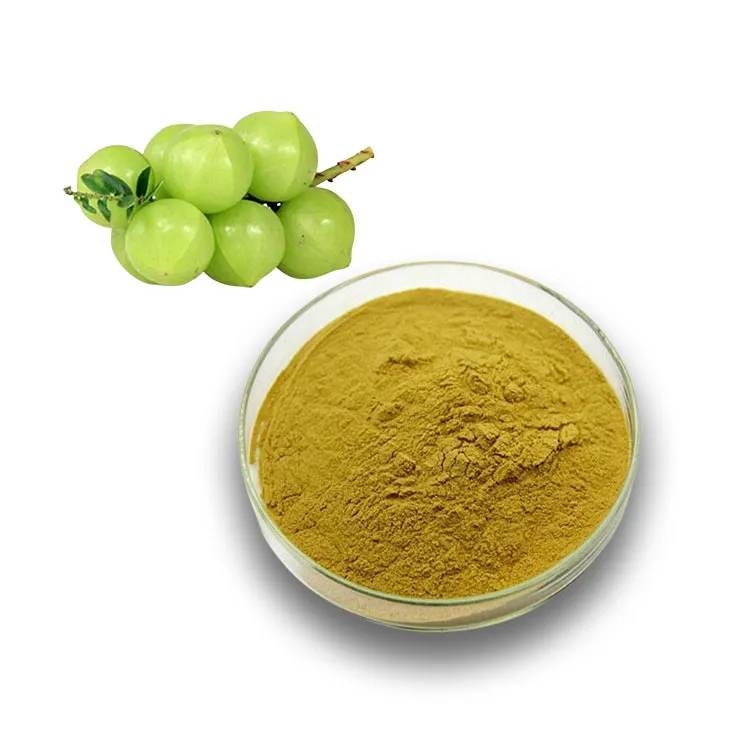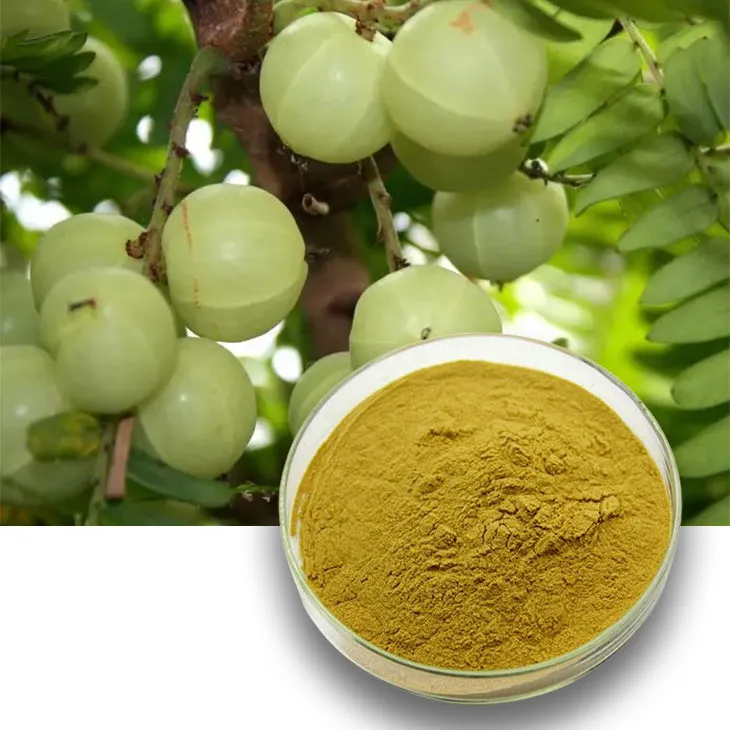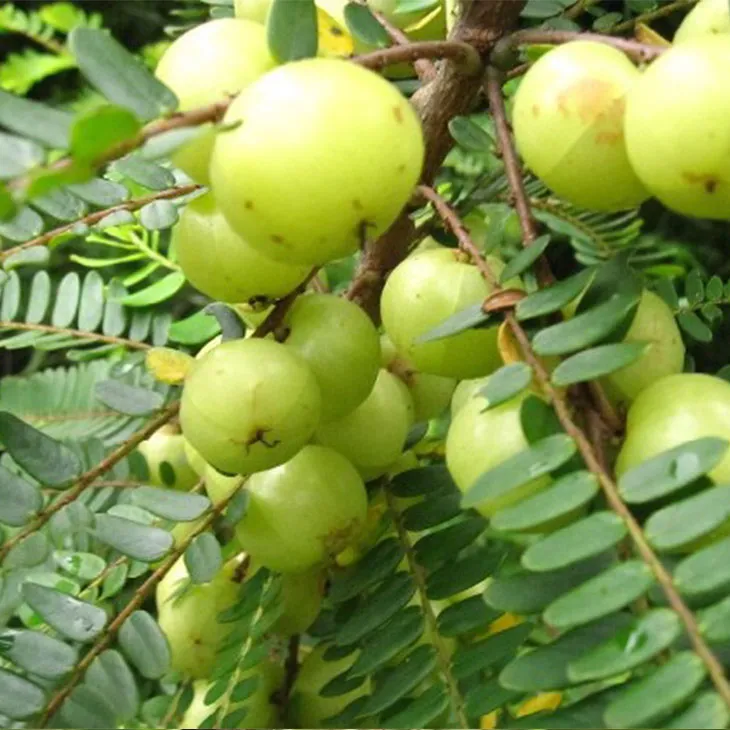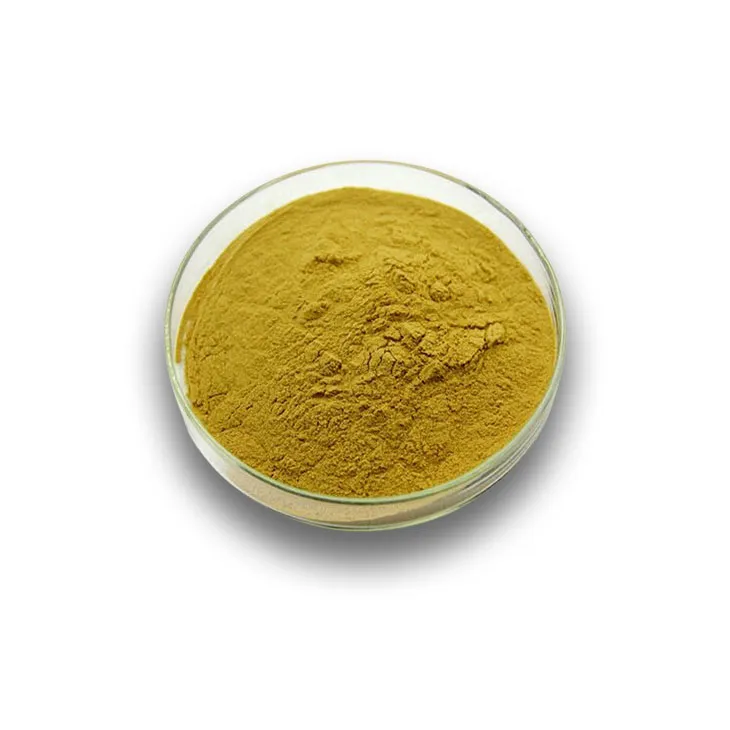- 0086-571-85302990
- sales@greenskybio.com
Does phyllanthus emblica extract have benefits for diabetes? Are these all safe and applicable for diabetic patients?
2024-11-13

1. Introduction
Diabetes has become a global health concern, with an increasing number of people being diagnosed each year. Management of diabetes often involves a combination of lifestyle changes, medications, and sometimes the use of natural supplements. Phyllanthus emblica, also known as Indian gooseberry, has been used in traditional medicine for centuries. Its extract is now being studied for its potential benefits in diabetes care. This article aims to explore the role of Phyllanthus Emblica Extract in improving insulin sensitivity, reducing diabetic complications, and assessing its safety for diabetic individuals.

2. Phyllanthus emblica: An Overview
2.1 Botanical Characteristics
Phyllanthus emblica is a deciduous tree native to India and other parts of Southeast Asia. It has small, oval - shaped leaves and produces greenish - yellow fruits. The fruits are rich in various bioactive compounds, which are the main components of the extract studied for its potential health benefits.2.2 Traditional Uses
In traditional Ayurvedic medicine, Phyllanthus emblica has been used for a wide range of health conditions. It was believed to have rejuvenating properties, improve digestion, and enhance the immune system. Additionally, it was used to treat various ailments related to the eyes, skin, and liver. These traditional uses have led to modern scientific investigations into its potential therapeutic effects, especially in relation to chronic diseases like diabetes.
3. Potential Benefits for Diabetes
3.1 Improving Insulin Sensitivity
One of the key factors in diabetes management is improving insulin sensitivity. Insulin is a hormone that regulates blood sugar levels by facilitating the uptake of glucose into cells. In diabetic patients, especially those with type 2 diabetes, insulin resistance is a common problem. Studies have suggested that Phyllanthus Emblica Extract may play a role in enhancing insulin sensitivity. - Mechanisms: The extract contains certain phytochemicals such as flavonoids and tannins. These compounds may interact with the insulin signaling pathway in cells. For example, flavonoids can activate enzymes that are involved in the normal function of the insulin receptor. By doing so, they can improve the ability of cells to respond to insulin, thus facilitating the uptake of glucose and reducing blood sugar levels. - Research Evidence: Some animal studies have shown promising results. Mice fed with a diet supplemented with Phyllanthus Emblica Extract exhibited improved glucose tolerance compared to the control group. Their insulin levels also remained more stable, indicating better insulin sensitivity. However, more human - based studies are needed to confirm these findings and to determine the appropriate dosage for effective treatment.3.2 Reducing Diabetic Complications
Diabetes is often associated with various complications, such as neuropathy, retinopathy, and nephropathy. Phyllanthus emblica extract may have a role in preventing or reducing these complications. - Oxidative Stress and Inflammation: High blood sugar levels in diabetic patients can lead to increased oxidative stress and inflammation in the body. These processes are closely related to the development of diabetic complications. Phyllanthus emblica is rich in antioxidants, such as vitamin C and polyphenols. Antioxidants can neutralize free radicals and reduce oxidative stress. By doing so, they can potentially slow down the progression of diabetic complications. For example, in the case of diabetic retinopathy, reducing oxidative stress can protect the blood vessels in the retina from damage. - Blood Vessel Protection: The extract may also have a beneficial effect on blood vessels. It can help improve endothelial function, which is important for maintaining healthy blood vessels. Good endothelial function is crucial for preventing the development of vascular complications in diabetes, such as atherosclerosis. Some in - vitro studies have shown that components of the Phyllanthus emblica extract can stimulate the production of nitric oxide in endothelial cells. Nitric oxide is a vasodilator that helps keep blood vessels relaxed and improves blood flow.
4. Safety Considerations
4.1 General Safety
Phyllanthus emblica extract is generally considered safe when consumed in moderate amounts. In traditional medicine, it has been used for a long time without significant reports of adverse effects. However, as with any supplement, individual responses may vary. - Allergic Reactions: Some people may be allergic to Phyllanthus emblica or its components. Allergic symptoms can include skin rashes, itching, or swelling. People with a known allergy to plants in the Phyllanthus genus should avoid using the extract. - Interactions with Medications: Diabetic patients are often on multiple medications. There is a potential for interactions between Phyllanthus emblica extract and diabetes medications, as well as other drugs. For example, it may interact with medications that lower blood sugar levels, such as metformin or sulfonylureas. This could potentially lead to hypoglycemia (low blood sugar). Therefore, it is essential for diabetic patients to consult their healthcare provider before starting to use the extract.4.2 Quality and Standardization
The safety and effectiveness of Phyllanthus emblica extract also depend on its quality and standardization. - Contaminants: Poor - quality extracts may be contaminated with heavy metals, pesticides, or other harmful substances. These contaminants can pose health risks, especially for diabetic patients who may already have compromised health. - Dosage and Potency: The lack of standardized dosage forms can make it difficult to determine the appropriate amount of the extract to use. Different products may contain varying levels of active compounds, which can affect their efficacy and safety.
5. Conclusion
Phyllanthus emblica extract shows potential benefits in diabetes management, particularly in improving insulin sensitivity and reducing diabetic complications. However, more research, especially in human subjects, is needed to fully understand its mechanisms of action and to establish its efficacy. Regarding safety, while it is generally considered safe, there are potential risks such as allergic reactions and interactions with medications. Diabetic patients should always consult their healthcare providers before using Phyllanthus emblica extract. Ensuring the quality and standardization of the extract is also crucial for its safe and effective use in diabetes care.
FAQ:
Question 1: How does Phyllanthus emblica extract improve insulin sensitivity?
Phyllanthus emblica extract may contain certain bioactive compounds. These compounds might interact with cells in the body, such as muscle, fat, and liver cells. They could potentially enhance the cells' ability to respond to insulin, which in turn helps in improving insulin sensitivity. For example, it may influence the insulin signaling pathways within the cells, making it easier for insulin to transport glucose into the cells for energy production or storage.
Question 2: What diabetic complications can Phyllanthus emblica extract reduce?
It has been suggested that Phyllanthus emblica extract may help in reducing some diabetic complications. For instance, in relation to diabetic neuropathy, the extract's antioxidant properties may help protect nerve cells from damage caused by high blood sugar levels. In terms of diabetic retinopathy, it might reduce oxidative stress in the eyes, which is a major factor contributing to this complication. Also, in diabetic nephropathy, it could potentially protect the kidneys by reducing inflammation and oxidative damage that are often associated with high blood glucose levels.
Question 3: Are there any side effects of Phyllanthus emblica extract for diabetic patients?
While Phyllanthus emblica extract is generally considered safe, some diabetic patients may experience side effects. In some cases, it could cause mild gastrointestinal discomfort, such as nausea or diarrhea. However, these side effects are relatively rare. It's important to note that individual reactions can vary, and it's always advisable for diabetic patients to consult their healthcare providers before starting any new supplement, including Phyllanthus emblica extract.
Question 4: How should diabetic patients take Phyllanthus emblica extract?
The appropriate way for diabetic patients to take Phyllanthus emblica extract depends on various factors. It can be taken in the form of capsules, powders, or tinctures. However, the dosage should be determined based on the patient's overall health, the severity of their diabetes, and other medications they may be taking. Generally, it's recommended to start with a low dose and gradually increase it if no adverse effects are observed. But again, this should be done under the guidance of a healthcare professional.
Question 5: Is there enough scientific evidence to support the use of Phyllanthus emblica extract for diabetes?
There is some scientific research on the potential benefits of Phyllanthus emblica extract for diabetes. However, more extensive and conclusive studies are still needed. Some studies have shown positive results in terms of improving insulin sensitivity and reducing certain diabetic complications in laboratory and small - scale human trials. But to fully establish its effectiveness and safety for diabetes treatment, larger, well - designed clinical trials are required.
Related literature
- The Potential of Phyllanthus emblica in Diabetes Management: A Review"
- "Phyllanthus emblica Extract and Its Impact on Insulin Resistance in Diabetic Patients"
- "Safety and Efficacy of Phyllanthus emblica for Diabetic Complications"
- ▶ Hesperidin
- ▶ Citrus Bioflavonoids
- ▶ Plant Extract
- ▶ lycopene
- ▶ Diosmin
- ▶ Grape seed extract
- ▶ Sea buckthorn Juice Powder
- ▶ Fruit Juice Powder
- ▶ Hops Extract
- ▶ Artichoke Extract
- ▶ Mushroom extract
- ▶ Astaxanthin
- ▶ Green Tea Extract
- ▶ Curcumin
- ▶ Horse Chestnut Extract
- ▶ Other Product
- ▶ Boswellia Serrata Extract
- ▶ Resveratrol
- ▶ Marigold Extract
- ▶ Grape Leaf Extract
- ▶ New Product
- ▶ Aminolevulinic acid
- ▶ Cranberry Extract
- ▶ Red Yeast Rice
- ▶ Red Wine Extract
-
Passionflower Extract
2024-11-13
-
Yohimbine Bark Extract
2024-11-13
-
Natural grape seed extract
2024-11-13
-
Selenium yeast
2024-11-13
-
Wheat Germ Extract
2024-11-13
-
Okra Extract
2024-11-13
-
Hedyotis Diffusa Extract
2024-11-13
-
Alisma Extract
2024-11-13
-
Fig Extract
2024-11-13
-
Grape Leaf Extract
2024-11-13





















